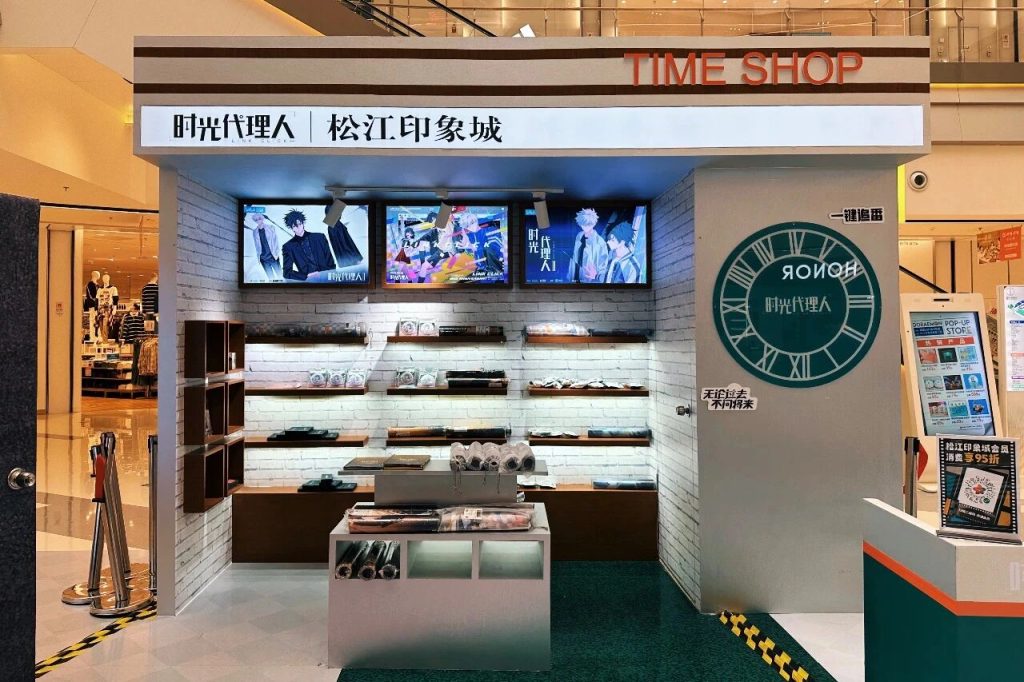GIC Partners with Inli to Make a Heavy Investment Exceeding 10 Billion in Shopping Centers
“GIC Partners with Inli to Make a 10 Billion Investment in Shopping Centers”Today, Inli Shanghai officially announced its collaboration with a well-known international capital firm to establish a large-scale investment portfolio plan exceeding 10 billion, further investing in high-quality development and mature commercial assets within Shanghai’s city limits.The History of GIC:The name GIC is widely recognized. Established in 1981, the full name is the Government of Singapore Investment Corporation. Initially chaired by Singapore’s Prime Minister Lee Kuan Yew, the organization’s investment portfolio spans stocks, bonds, foreign exchange, real estate, private equity, and more, making it the largest international investment institution in Singapore. Although wholly owned by the Singapore government, GIC operates as a fund manager and client relationship, with its portfolio managed through three independent operating entities: GIC Asset Management, GIC Real Estate, and GIC Special Investments.Historically, GIC’s most important business segment was managing a significant portion of the Singapore government’s overseas assets. However, in recent years, as GIC expanded its reach into international markets, the company’s business areas also grew.
By around 2016, GIC began collaborations with major domestic companies such as Alibaba, Ant Group, and Meituan. Meanwhile, GIC has also been deepening its involvement in shopping center investments. Adhering to the principle of “disciplined long-term value investing,” GIC began acquiring Sydney’s most iconic CBD shopping centers in 2003, including the Queen Victoria Building, the Strand Arcade, and The Galleries. Although ownership of these properties transferred to Link REIT in 2021, GIC’s nearly two-decade holding period provided them with rich domain experience.Today, GIC still owns shopping center assets globally, including notable properties like the D-CUBE Mall in Korea and the RomaEst Mall on the outskirts of Rome. Their recent actions in China further underscore their interest and focus on the Chinese retail sector. For instance, in 2021, GIC partnered with the Hong Kong-based Kerry Group to acquire the Jiufeng Road New Jia Center project in Shanghai (commercial area of 360,000 square meters). In 2023, GIC acquired a 70% stake in the China Resources Wanjing Mall project company in Beijing, extending its collaboration from the project level to a deeper relationship with the property management team. This indicates that GIC’s investment targets are typically high-standard, large-scale projects in top-tier cities, managed by professional teams.

A Closer Look at the Investment:Unlike typical equity changes, where one party exits and another enters, this cooperation seems more like GIC’s increased commitment to the project. In fact, both the Shanghai Nanxiang Impression City MEGA and Songjiang Impression City are jointly developed by GIC and Inli at a 50:50 equity split.Regarding the specifics of the collaboration, the announcement by Inli Shanghai did not provide detailed disclosures. However, based on past data, we can make some projections:Transaction Amount: According to previously disclosed data from listed companies, Nanxiang Impression City achieved a revenue of 193 million RMB in the first half of 2023, while Songjiang Impression City recorded 96.19 million RMB in revenue. Based on standard NOI margins and capitalization rates, these two projects’ total valuation exceeds 10 billion RMB.Project Targets: Inli’s announcement mentioned “further joint investments in high-quality development and mature commercial assets within the Shanghai metropolitan area,” which hints at the potential for further collaboration between the two parties. With multiple ongoing projects, such as the second phase of Songjiang Impression City (which is under construction and located just one street away from the existing project), Inli Shanghai has accumulated a pipeline of projects to leverage.
The Significance of the Deal:For both parties, this is a win-win collaboration. For GIC, this joint venture helps alleviate financial pressures while retaining brand influence. For Inli, having GIC on board adds significant credibility and financial support. GIC’s expertise and the high-quality capital it brings will boost Inli’s long-term growth and serve as an important case for its story in the capital markets. Additionally, this deal broadens the cooperation between Inli and its capital partners, allowing Inli to strategically utilize various capital tools at different project stages.Another possibility lies in the undisclosed funding amounts and project lists, which might suggest the potential for more accelerated expansion. In recent years, Inli Shanghai has become one of the most active asset management companies in Shanghai. Inli has expanded its collaboration with property owners, including Foxconn, Caohujing, Baowu Steel, and West Bund, covering diverse industries such as technology, real estate, and manufacturing.Looking ahead, the partnership between international capital and China’s retail market serves as a shot of confidence for industry players. The future of real estate will see closer integration between commercial real estate and capital, whether through asset transactions, public funds, or joint ventures. Inli’s approach—while focused on operations—has also demonstrated its agility in embracing capital, presenting an opportunity to navigate through cycles and move toward long-term success.